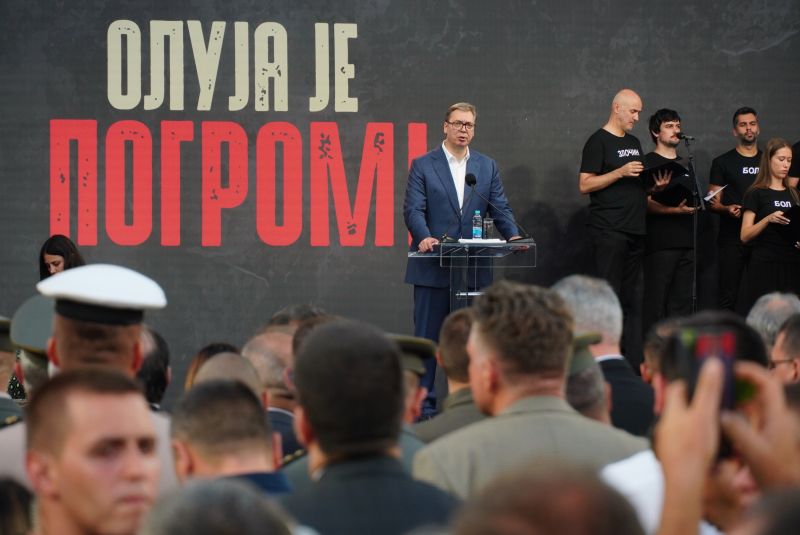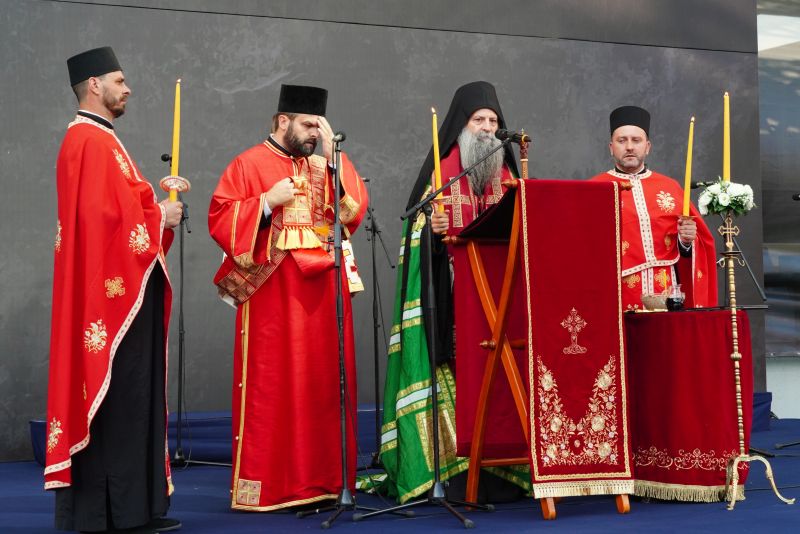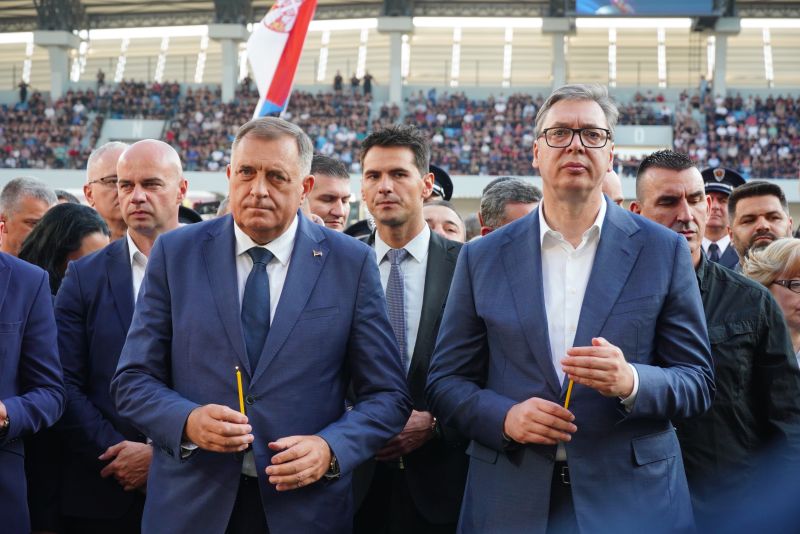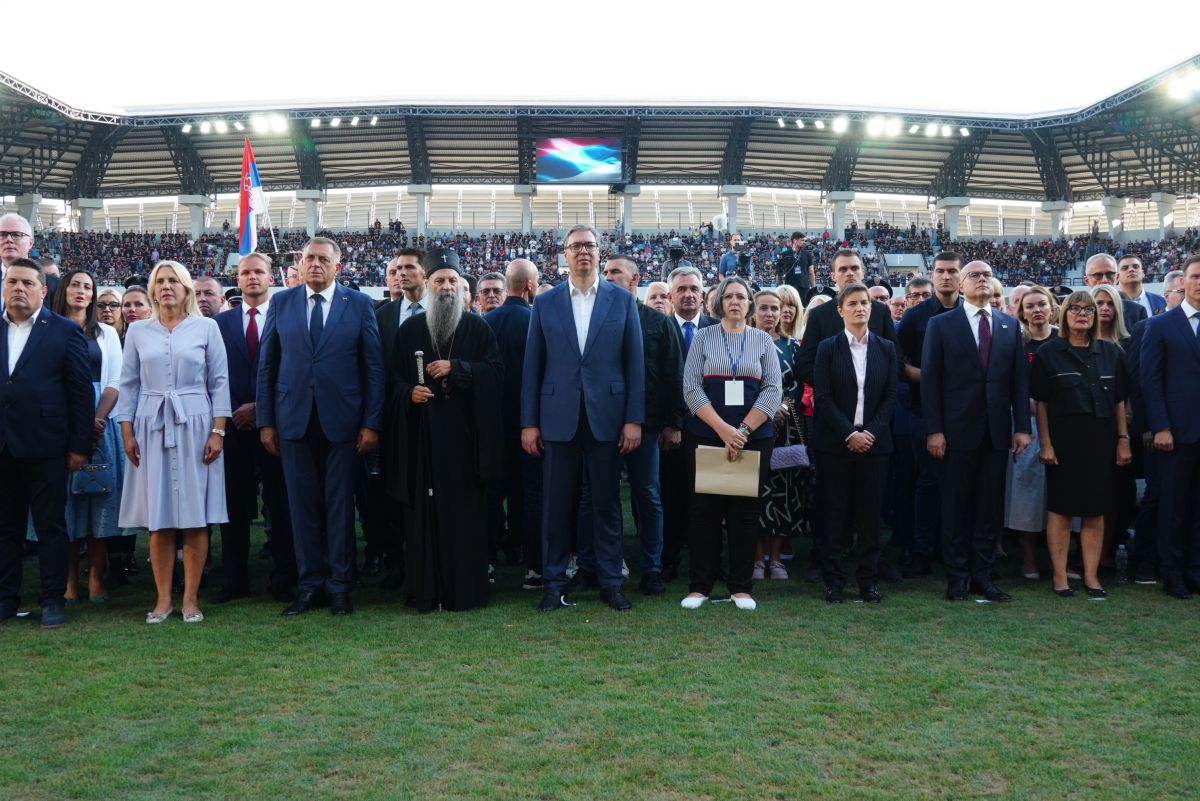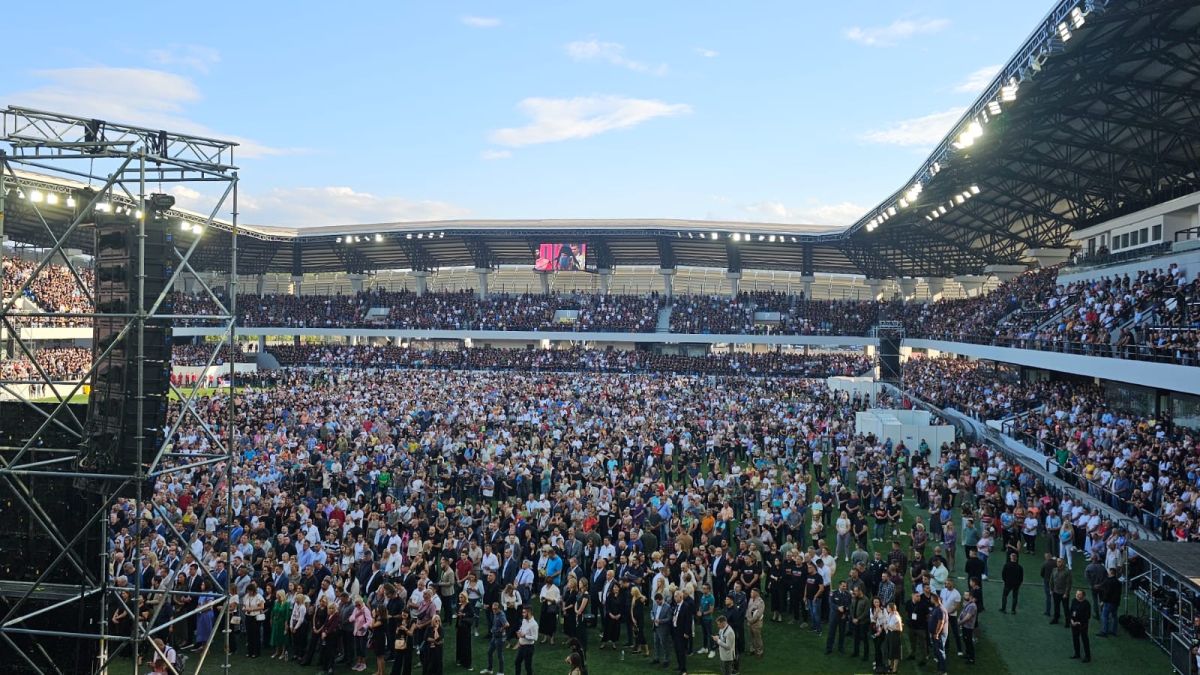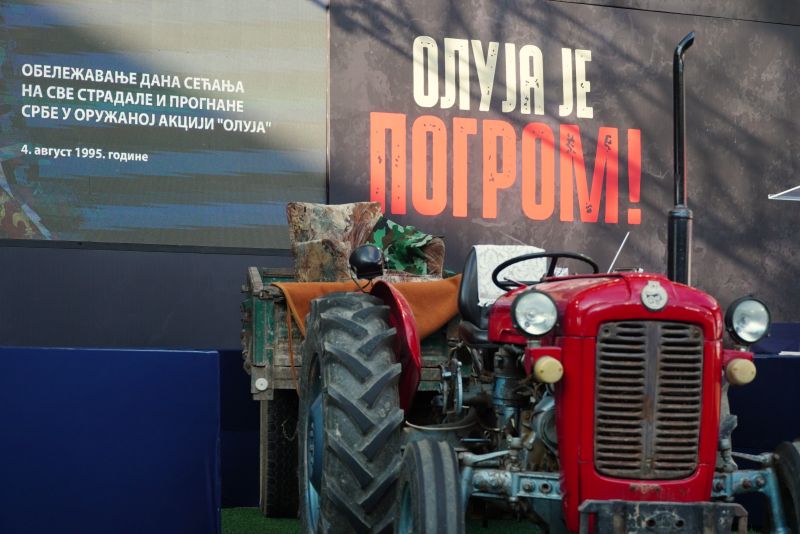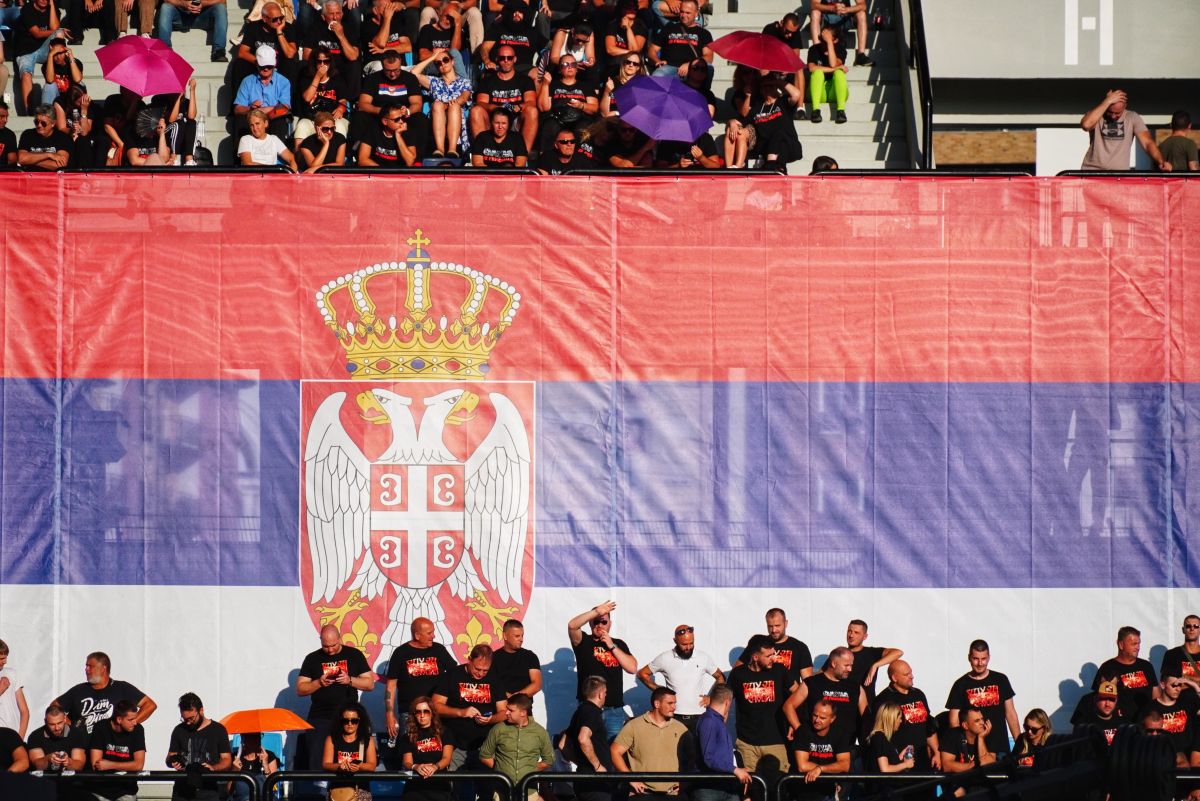In the presence of the state leadership of Serbia and Republika Srpska, church dignitaries and a large number of citizens, the Day of Remembrance of all those who died and were exiled in the Croatian armed operation "Storm" was marked today in Loznica.
- Serbia
Get to know Serbia
- Citizens
Culture and science
Health services
Pension and disability insurance
- Business
Employment
Economy
- Media
- Government
- Contact
Keep in touch
Keepin touch
Whether you have a question, comment, suggestion or any problem in the purview of the government, send us your message and we will try to respond as soon as possible. If your problem is not in our purview, we will forward your message to the relevant institution.
Determined that there will never be pogrom, persecution of Serbian people again
The commemoration was attended by Prime Minister Miloš Vučević, with members of the Serbian government, President of the Republic of Serbia Aleksandar Vučić, Serbian parliament Speaker Ana Brnabić, President of Republika Srpska Milorad Dodik and Serbian member of the Presidency of Bosnia and Herzegovina Željka Cvijanović.
At the gathering, Vučić stated that no one will ever divide and destroy the Serbian people.
There will be no more pogroms, persecutions, or tractors, but we will have to be economically and militarily stronger to deter everyone, the President emphasised, pointing out that for the past ten years, on every 3 or 4 August, that great tragedy of the Serbian people has been commemorated.
The beginning of August, these are the days of our sadness, our memories, our pain, because of the lost people, their houses, hearths, because of the lost children that we will never be able to bring back. But these are also days of pride, because those who attack us, those who are rejoicing, as they say, in their great victory, will never be able to understand that it is not a victory when you lead an operation on a tank against women, children and old men on tractors, he said.
Serbian Patriarch Porfirije said that an exodus has never been a trigger for despair among Serbs, but an incentive for hope and optimism, a free life and the arrival of future generations.
The memory of those who died during the "Storm" and those who were expelled from their properties at that time is a confirmation of our faith in peace and freedom, he pointed out and added that we have to fight with opponents of peace and haters of freedom.
The Croatian military-police operation "Storm" is marked in Serbia as criminal and is commemorated with reverence and memory of the victims of that crime.
According to data of the Veritas Documentation and Information Centre, during this criminal operation by the Croatian forces in Republika Srpska Krajina, almost 2,000 people were killed or are considered missing, and more than 220,000 Serbs were expelled from their homeland in the then Republika Srpska Krajina.
Photos: Tanjug
-
 Belgrade, 11 February 2026
Belgrade, 11 February 2026Ample space for advancing cooperation with Ukraine in field of education
-
 Belgrade, 11 February 2026
Belgrade, 11 February 2026Spain’s support for Serbia’s European path
-
 Belgrade, 10 February 2026
Belgrade, 10 February 2026Libya’s participation in Expo 2027 confirms strong bilateral relations
-
 Belgrade/Astana, 10 February 2026
Belgrade/Astana, 10 February 2026Potential for advancing cooperation with Kazakhstan in multiple sectors
-
 Belgrade, 10 February 2026
Belgrade, 10 February 2026Serbia fully committed to implementation of reforms
-
 Belgrade, 9 February 2026
Belgrade, 9 February 2026Partnership with Romania in solving issues of importance to citizens
-
 Belgrade, 9 February 2026
Belgrade, 9 February 2026UN-Republic of Serbia Sustainable Development Cooperation Framework 2026-2030 signed
-
 Belgrade, 9 February 2026
Belgrade, 9 February 2026Support of neighbouring countries of great importance for Serbia’s European integration process
-
 Belgrade, 7 February 2026
Belgrade, 7 February 2026Solid foundations for long-term, systemic development of beekeeping laid
-
 Belgrade/Brussels, 6 February 2026
Belgrade/Brussels, 6 February 2026Serbia's full readiness to cooperate with EC to accelerate reform implementation

